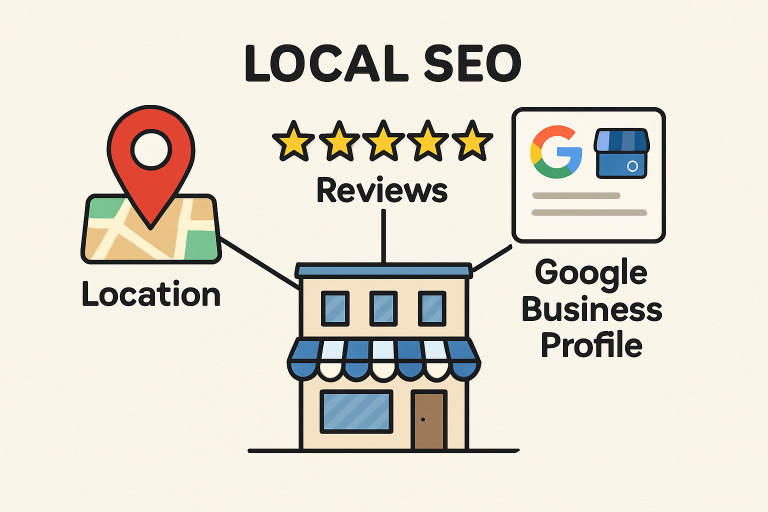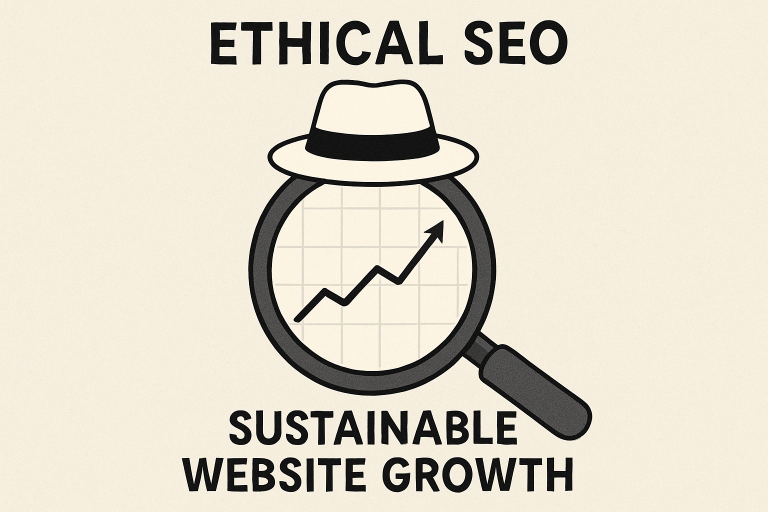Local SEO Tactics That Make a Difference: Expert Insights

Why Local SEO Matters
The search landscape has shifted dramatically as mobile and hyper-local intent dominate how customers find businesses. A powerful local SEO presence is crucial for brands that want to be discovered at the very moment users are searching. Recent data points reveal that nearly four out of five local mobile searches lead to an in-person purchase, underscoring the tangible impact of effective local search strategies. Whether optimizing for brick-and-mortar visits or digital conversions, visibility in local results is a game-changer. Small businesses in particular can benefit from enlisting the expertise of a Denver SEO company to implement cutting-edge approaches that boost their local rankings and drive foot traffic.
As Google’s algorithms grow increasingly sophisticated, businesses that adapt to local intent and optimize for real-world interactions will thrive. Consistency across digital and physical listings, responsiveness to customer needs, and leveraging new local search tools set growing companies apart in an ever-crowded market. According to Search Engine Land, keeping up with how search engines reinterpret “near me” search behavior is more important than ever.
Building Quality Citations and Local Links
Citations are the digital breadcrumbs that guide customers—and search engines—to your door. Search platforms view business mentions across reputable directories as trust signals. Consistent Name, Address, and Phone Number (NAP) information across the web is non-negotiable; even minor discrepancies can cause confusion and hurt rankings. Proactively maintaining accurate citations through tools or manual audits is foundational for building authority.
Beyond citations, cultivating strong local backlinks is essential for online prominence. Earning links from relevant community partners, local news sites, and neighborhood organizations not only enhances your search engine credibility but also strengthens authentic connections with your target audience. Sponsoring local events, participating in charity drives, or engaging with local online publications can result in valuable backlinks and increased exposure for your business.

Optimizing Your Google Business Profile
Your Google Business Profile (GBP) serves as your business’s digital storefront and is often the first impression a customer has of your brand. Keeping your GBP up to date with accurate information, high-quality photos, and regular business updates ensures trust and engagement. Adding features like appointment booking links, up-to-date service hours (including special holidays), and responding to frequently asked questions helps your business stand out in local search results.
According to a recent BrightLocal survey, businesses with fully optimized Google profiles receive more calls, map views, and direction requests than their less active competitors. Engaging with GBP’s interactive features—like posting updates, promotions, or events—keeps your audience informed and builds continual relevance in Google’s algorithm.
The Role of Local Reviews
Online reviews wield immense influence over potential customers—and Google’s local ranking system. Most consumers trust reviews nearly as much as personal recommendations, and a high volume of positive feedback signals reliability and service quality to both users and search engines. Requesting authentic feedback from satisfied clients and responding thoughtfully to every review, positive or negative, demonstrates that you value community input and take customer service seriously.
Businesses investing in review management often benefit from increased click-through rates and higher conversion rates. Responding professionally to critical reviews can even turn dissatisfied customers into loyal advocates and show the community that you stand behind your brand’s reputation.
Location Pages and Schema Markup for Visibility
Multi-location businesses face the challenge—and opportunity—of creating location-specific pages that resonate with both users and search engines. Each page should feature unique content, embedded maps, directions, photos, and hyper-localized keywords tailored to the area served. Adding local business schema markup assists search engines in understanding your business details, increasing visibility in map results and featured snippets. For step-by-step guidance on implementing schema and optimizing local intent, Moz Blog’s Local SEO Guide provides actionable best practices.
Location pages also serve as targeted landing points for localized ad campaigns, enabling businesses to drive traffic from specific neighborhoods and measure results effectively. Rich, location-focused content and well-structured schema give search engines the clarity they need to rank your business for highly specific queries.
Measuring Success in Local SEO Efforts
Effective local SEO strategies are grounded in clear, measurable outcomes. Key metrics include local search rankings, clicks for directions, website visits by region, call tracking, and actual in-person visits if applicable. Google Business Profile Insights, Google Analytics, and Search Console combine to give businesses granular data on where leads originate and how users engage.
Regularly assessing these metrics allows you to identify high-performing tactics, uncover untapped opportunities, and correct course where needed. For best results, businesses should tailor reporting to highlight metrics most closely aligned with growth goals, whether that’s more phone calls, web forms, or foot traffic.
Real-World Local SEO Strategies: Case Studies & Insights
Success stories illustrate how local engagement delivers real business growth. For example, a local café that sponsors produce fairs or farmers’ markets can land valuable coverage on community blogs and local news sites, resulting in a spike in both traffic and sales. Similarly, dental practices or boutique retailers can collaborate with nearby businesses for cross-promotional campaigns, building backlinks and shared customer bases in the process.
Replicating these real-world, relationship-driven link-building tactics helps small businesses create a virtuous cycle: improving local rankings while authentically engaging with the community. Case studies show that prioritizing trust, accessibility, and local relevance pays dividends in visibility and credibility.
Key Trends and Future Outlook
The future of local SEO hinges on adapting to rapid advances in voice search, AI-powered algorithms, and privacy regulations. Consumers now expect answers on demand, favoring businesses that match their immediate intent. Optimizing for conversational keywords, maintaining a mobile-first website, and leveraging structured data are now baseline requirements.
As Google and other search engines shift towards entity-based indexing and personalized results, trust-building activities such as first-party data collection and proactive review management become increasingly important. Monitoring emerging trends from leading publications like Search Engine Journal Local SEO ensures businesses don’t fall behind as the industry evolves.
Conclusion
Building a robust local SEO presence helps businesses form meaningful, lasting connections with nearby customers. Focused efforts on citation consistency, review generation, Google Business Profile enhancements, and localized web content ensure ongoing search visibility. As the landscape shifts, prioritizing user experience and community engagement offers sustainable, long-term growth in every local market.






